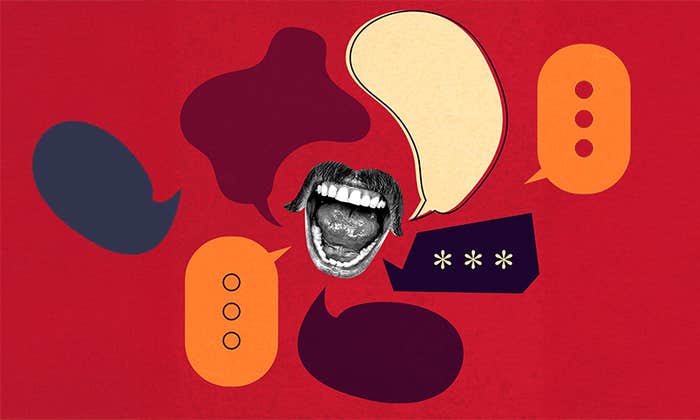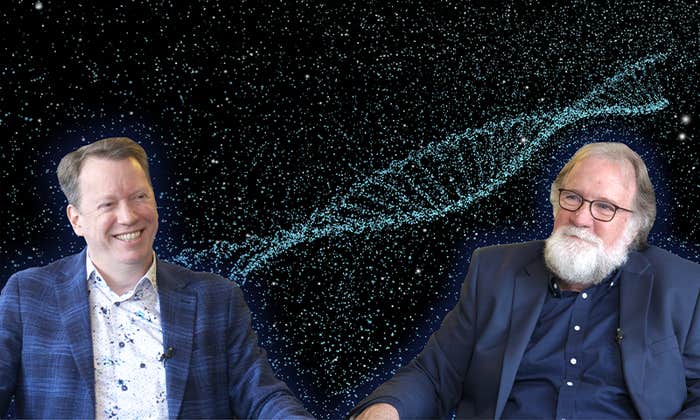In 2008, John Porter, a Washington, D.C. lawyer and former Republican member of Congress, stood in front of a group of scientists at a meeting of the American Association for the Advancement of Science, and urged them to make their cases to the media and to the people. “America needs you,” Porter said, “fighting for science.”
At the time, the number of science articles in American newspapers had shrunk dramatically. Science on television also suffered. CNN dismissed its entire science, space, environment, and technology unit. According to a National Science Foundation report, network nightly news programs from 2000 to 2012 devoted less than 2 percent of air time to science, space, and technology, and less than 1 percent to biotechnology and basic medical research.
Nonetheless, occasionally scientists are asked to overcome their personal reticence, the verbal handcuffs imposed by the scientific method, and the cultural, political, and psychological forces working against them to talk to the general public. I am one of those scientists. Since my first television appearance in 1993 on a program called Good Day Philadelphia, I’ve been interviewed on national morning and evening news shows, from CBS This Morning to CNN, comedy shows like The Colbert Report, and collaborated on scientific documentaries on Frontline and Nova. Along the way, I’ve learned some painful, hard-earned, and occasionally humorous lessons. Here are four of them.
In September 2007, I was asked to appear with actress Jenny McCarthy on Oprah. McCarthy would be talking about a vaccine she was certain had caused her son’s autism. At first, it seemed like a good idea. I could educate millions of people about why vaccines didn’t cause autism and how, with so many studies now in hand, we knew that they didn’t. A chance to calm the waters.
But that’s not what this show was about. Oprah was there to tell a story. And her story had three roles: the hero, the victim, and the villain. Jenny was the hero. Her son was the victim. This left only one role for me. I would be the guy telling Jenny that she was wrong and that, by extension, Oprah was wrong to have had her on the show. Jenny knew the cause of her son’s autism (vaccines). I didn’t. Jenny had cures for autism (megavitamins, hyperbaric oxygen chambers, and mercury-binding medicines). I didn’t. I told the producer, Thanks, but no thanks.
Oprah’s story had three roles: hero, victim, and villain. Jenny McCarthy was the hero. Her son was the victim. This left only one role for me.
Science didn’t do well on Oprah that day. First, McCarthy told her story: “Right before his MMR shot, I said to the doctor, ‘I have a very bad feeling about this shot. This is the autism shot, isn’t it?’ And he said, ‘No, that’s ridiculous. It is a mother’s desperate attempt to blame something,’ and he swore at me, and then the nurse gave [Evan] the shot. And I remember going, ‘Oh, God, I hope he’s right.’ And soon thereafter—boom—the soul’s gone from his eyes.” Fighting back tears, McCarthy explained how her son had been fine one minute and then, because of that vaccine, had been condemned to a lifelong struggle with autism.
Later in the program, Oprah read a prepared statement from the Centers for Disease Control stating that McCarthy’s concerns weren’t supported by the evidence—a dry, carefully worded missive from a distant, monolithic body. The CDC didn’t have a chance. McCarthy’s heartfelt confession won the day.
Jenny McCarthy’s appearance on Oprah launched her career as a powerful force against vaccines. And we have Oprah Winfrey to thank.
Lesson: Don’t go on a show where the host isn’t on your side.
Early in January 2011, I got a call from Emily Lazar, a producer for The Colbert Report. Would I be interested in coming on the show at the end of the month to talk about my new book, Deadly Choices: How the Anti-Vaccine Movement Threatens Us All? I had never seen the show, but my children assured me that this was one I shouldn’t miss. They explained that a lot of young people get their news from The Colbert Report and The Daily Show, not from the major network news programs.
The show was scheduled to air on January 31. So I had the entire month to be nauseated and apprehensive. When I arrived at The Colbert Report studio in Manhattan, I was escorted to a green room that contained great food that I was too nervous to eat. Although I hadn’t expected it, Colbert met with each guest before the show. He explained to me that he played a character, that he was going to stay in character for the entire interview, and that, if the show was to be any good, I shouldn’t let his character get away with anything. He said that he agreed with me completely. He said that his father—who I later learned had died in a plane crash when Colbert was 10 years old—had been a doctor with an interest in infectious diseases and immunology. Colbert explained that an assistant would soon lead me to the set. Then he left.
Stephen Colbert did most of the show from a large desk shaped like the letter “C.” When it was time to interview an author, he would jump up, wave to the crowd, and sit down opposite his guest at a small table. There was, however, about a five-minute period during which I sat at the table alone. It’s hard to describe how frightening this is.
But an odd sense of calm came over me when Colbert sat down for the interview. I felt like an astronaut about to blast off. No more preparation. No more practicing possible questions and answers. Everything was now out of my control. I was in the hands of Stephen Colbert, a man who had successfully humiliated people far smarter and cleverer than me.
The segment started. “Alright, I’ll bite,” Colbert starts off. “Why should I vaccinate my kids?”
Great. A home run pitch. Maybe this wasn’t going to be as bad as I thought. “Because vaccines have saved their lives,” I say.
Then Colbert systematically parodies the reasons that some parents have chosen not to vaccinate their children; first, vaccines are victims of their own success. “I had my kids immunized against rubella,” says Colbert. “Guess what? They never got rubella. It was a waste of money.”
“See, that’s the thing about vaccines,” I said. “When they work, absolutely nothing happens. But that’s a good thing, right?”
“I don’t know, you see,” says Colbert, “because I am entirely motivated by fear, and if I don’t see something around me to fear, I think a little outbreak [is] not a bad idea. … But if I was afraid, I would do it.”
“Well, people are getting sick, and they are dying,” I say. “Says you!” Colbert counters. This was a little intimidating. But as Colbert had instructed me before the show, I tried to separate the person Stephen Colbert from the character he was playing and fight back. “We have a whooping cough outbreak in California that’s bigger than anything we’ve seen in more than 50 years, and there are 10 children who have died of whooping cough. So a choice not to get a vaccine is a risky choice.”
Backstage, Stephen Colbert told me he played a character, and if the show was to be any good, I shouldn’t let his character get away with anything.
Colbert next addresses the issue of social responsibility. “But if everyone around me is immunized,” he says, “then why do I or my kids need to get immunized? We’re protected by them, right?”
“The problem is that there are about 500,000 people in the United States who can’t be vaccinated … They depend on those around them to protect them.” Long, long pause. “And that’s you,” I say, pointing to Colbert.
“OK,” he continues, “so can’t we put those people in, like, the boy in the plastic bubble? Can’t we just do that?”
“So, like, a sort of big bubble for 500,000 people?” I ask.
“One at a time,” Colbert says. “Let’s be practical here.”
Then Colbert addresses the most outrageous claim made by anti-vaccine parents: that natural infections are a good thing. “Shouldn’t we just put sick people together and build up natural immunities the way the cavemen did?” Colbert asks.
“And that’s what we used to do,” I say. “And what would happen is that every year you would have thousands of children dying from measles or whooping cough or having congenital birth defects from rubella or being paralyzed by polio. Fortunately, we don’t have to do that anymore.”
“See, now, this isn’t fair,” he says, “because you’re playing the children-dying card. How am I supposed to fight that? Let’s keep this intellectual.”
Colbert closes the segment with a joke. “Were you immunized as a child?” he asks.
“Yes,” I say.
“Do you have the little scratch on your arm [that] looks like an asterisk?”
“Yes, that’s the one I got,” I answer.
“Now I understand, smallpox, obviously bad,” he says. “But swimsuit season is coming up, and you’ve got a scar on your arm. Isn’t there a better way to do that?”
“That scar seems to be a fairly small price to pay during swimsuit season,” I say.
“Depends on where it is,” he says.
Then he reached out to shake my hand, and it was over. The segment lasted about five minutes, but it seemed like 30 seconds. Colbert took the time to speak with my kids before we left. They were in heaven.
Lesson: As suggested by George Bernard Shaw, “If you’re going to tell people the truth, make them laugh, otherwise they’ll kill you.”
In June, 2013, I appeared on CBS This Morning with Norah O’Donnell, Gayle King, and Charlie Rose to talk about megavitamins, dietary supplements, and alternative medicine. I had recently written a book titled Do You Believe in Magic? The Sense and Nonsense of Alternative Medicine, which warned about the dangers of the supplement industry. King was impressive. Typically, you’re happy if the interviewer has read the title and flap of your book. King had read the entire book, which sat in front of her with paper tabs sticking out of the sections she had questions about. The conversation was amicable and informative. Then, suddenly, it wasn’t.
In the book, I had written about Steve Jobs, who had died from pancreatic cancer two years earlier. Jobs didn’t have the type of cancer for which no effective treatment exists (adenocarcinoma); rather, he had a neuroendocrine tumor—a cancer that can often be treated with early surgery. Unfortunately, instead of getting the surgery that might have saved his life, Jobs chose acupuncture, bowel cleansings, and fruit juices. When he finally had surgery, it was too late. Charlie Rose, as it turned out, was a friend of Steve Jobs. He was angered by my criticism of Jobs’s choices, arguing that I wasn’t Jobs’s doctor, so how could I possibly comment on his care?
“With respect to you, sir,” said Rose, “isn’t it dangerous to say if you never treated a person what might or might not have been the consequence?”
“I’m sorry,” I said. “I’m not understanding …” (Mild panic set in.)
“In other words, did you treat Jobs?” Rose insisted.
“No, I didn’t,” I said.
“So isn’t it dangerous to suggest what he might have been able to do if you didn’t treat him?” Rose asked.
I fell back on what I did know. “You know that neuroendocrine tumors have a 95 percent chance of survival with early surgery,” I countered. “And you know that he significantly delayed his surgery. I think that adds up to the fact that he put himself at unnecessary risk by choosing an alternative course.”
What I learned from this experience was not to go down the rabbit hole. The facts that I mentioned about Jobs’s diagnosis and care weren’t in dispute. They had been carefully described in Walter Isaacson’s biography of Steve Jobs and in many news stories.
Lesson: Don’t panic. The facts are your safety net.
In July 2013, the producers of Inside Edition asked me to talk about Do You Believe in Magic? The Sense and Nonsense of Alternative Medicine, a book that in part warns about taking vitamins at doses vastly in excess of the recommended daily allowance. Called “megavitamins,” these preparations can shift the body’s balance between oxidation and antioxidation too far in favor of antioxidation. I talked about how oxidation was important in killing new cancer cells and preventing clogged coronary arteries. I talked about how people would have to eat 14 oranges or eight cantaloupes to get the same amount of vitamin C as was contained in one 1,000 milligram tablet. I said that our stomachs are only so big for a reason and that we aren’t meant to eat 14 oranges or eight cantaloupes at once. I talked about the 20 studies that had consistently found that people who ingested large quantities of antioxidants, like vitamins A and E and the mineral selenium, increased their risk of cancer and heart disease and shortened their lives. Then I said that celebrities aren’t always the best source of medical advice: “When Jenny McCarthy says don’t get vaccines because that way you can avoid autism, that’s terrible advice. When Suzanne Somers says use her hormone replacement therapy because it’s all natural and isn’t going to cause the sort of problems that regular hormone replacement therapy cause, that’s bad advice. It’s amazing to me that we turn to celebrities for health advice.”
Later, the producers of Inside Edition asked Suzanne Somers to weigh in. Somers is probably best known for her role as Chrissy Snow on the television comedy Three’s Company, which last aired 34 years ago. She was also the spokesperson for the Thighmaster. At the time of the Inside Edition interview, Somers had become a one-woman industry, promoting megavitamins, supplements, and minerals, as well as skin-care, weight-loss, and detoxification products on her website. When Somers was asked to comment on statements that undermined her products, she said that I was just trying to build my reputation on her reputation. The night that the Inside Edition episode aired, I watched it with my wife and children, who were 21 and 18 years old at the time. They looked at each other and said, “Who’s Suzanne Somers?”
Lesson: Don’t be afraid to counter celebrities who have become an industry (even if no one remembers them anymore).
Paul A. Offit, M.D. is the director of the Vaccine Education Center at the Children’s Hospital of Philadelphia and a professor of pediatrics at the Perelman School of Medicine at the University of Pennsylvania.
From Bad Advice: Or Why Celebrities, Politicians, and Activists Aren’t Your Best Source of Health Information, by Paul A. Offit, M.D. Forthcoming in June 2018 from Columbia University Press.
Lead Photo Collage: Dr. Paul A. Offit on The Colbert Report with Stephen Colbert. Credit: Ambrophoto / Shutterstock


























